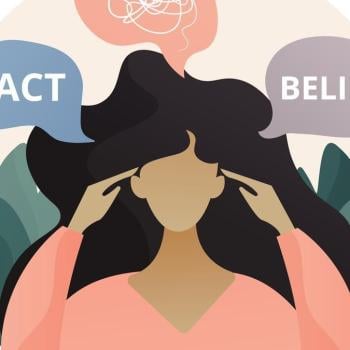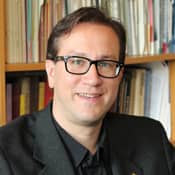Editors' Note: This article is part of the Patheos Public Square on the Future of Faith in America: Humanism. Read other perspectives here.
Imagine an America where 20 percent of the U.S. population openly identifies as atheist or agnostic. Sounds like an impossible fantasy? Surveys on religious belief in the United States may prove otherwise.
The number of Americans who don't adhere to any particular religion (the "nones") almost tripled over the past two decades, with the rate of increase speeding up over the last five years. With such a momentum, it's reasonable to think that this group will be the dominant political and social force in America by 2020.
Though once grouped in the "other" category with regard to the diversity of religious belief, the nones are now such a large minority that they must be considered independently. With 36 percent of younger millennials unaffiliated according to the Pew Research Center, it's only a matter of time before more Americans are unaffiliated than they are Catholic or Protestant. And unless you lump all Christians from Catholics to Pentecostals together, the nones will then become the single largest "religious" group in America.
The core of the unaffiliated, by definition if not by chosen label, is comprised of those who don't believe in gods. True, according to the latest surveys, only 31 percent of the nones identify as atheist or agnostic (which is 7 percent of all Americans), but that percentage is increasing with the growing acceptance of the nonreligious. Many more nones are atheist by definition — people who don't believe in any gods — but don't want to go public with it, either because they misunderstand "atheist" to mean anti-religious or because they simply don't want to use a label that is viewed negatively. With the numbers having doubled and continuing to rapidly increase, by 2020 it's likely that the number of Americans identifying specifically as atheist or agnostic will surpass 20 percent.
Over the last five years we've seen the rise of the loud and proud atheists, especially with the 20,000 people that descended on the National Mall for the Reason Rally in 2012. It's a mixed group that includes anti-religious firebrands as well as the religious nontheists who are more accommodating of faith perspectives.
Looking at specific examples helps to underscore the diversity. This spectrum includes those like Christopher Hitchens, who was convinced that supernatural beliefs are inherently harmful, and Richard Dawkins, who described religion as a virus. It also includes those like John Shelby Spong, a nontheistic Episcopal Bishop, and Eugenie Scott, who relies on science for knowledge but greatly values contributions from the faithful.
This diversity of approach will continue, but over time public prominence of those who reject the use of ancient texts and divine revelation for decision-making will steadily increase. And that's the change that has the biggest potential for impacting America as we know it.
The decline in the number of mainstream American churchgoers has been steady. Some, such as the nones, prefer no religion, while other Americans, in backlash to the progress of reason, have chosen more fundamentalist religions. But that backlash isn't sustainable. Lasting success in this society isn't possible without a firm understanding of evolution, climate change, sexuality, and science as a whole.
As I wrote in my newly released book, Creating Change Through Humanism, we'll start seeing broad changes in politics and culture as atheism and compatible philosophies like humanism come into their own in the coming years:
[T]raditional spirituality will continue to lose its authority. The churches will eventually surrender their currently losing battles on gay marriage, on a woman's right to choose, and on the maintenance of stereotyped gender roles. But it will also lose in struggles that are just beginning. The prejudice seen commonly among the faithful today — that goodness can only come through godliness — will be less and less accepted. As more and more of the population who are atheists and agnostics come out of the closet to their friends, family, and neighbors, it will be difficult to hold to the claim that so many lack the ability to lead productive moral lives. As this claim breaks down, religion and spirituality will begin to lose its connection to goodness in general. No longer will it be a social liability to voice secular and rationalist principles.





